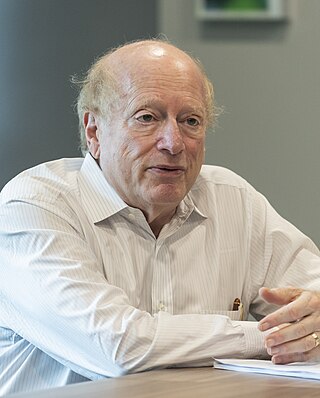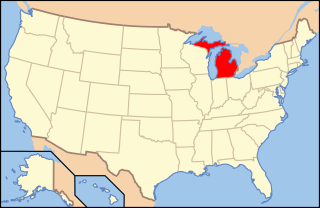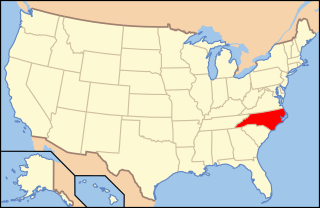Related Research Articles
Romer v. Evans, 517 U.S. 620 (1996), is a landmark United States Supreme Court case dealing with sexual orientation and state laws. It was the first Supreme Court case to address gay rights since Bowers v. Hardwick (1986), when the Court had held that laws criminalizing sodomy were constitutional.
Lawrence v. Texas, 539 U.S. 558 (2003), is a landmark decision of the U.S. Supreme Court in which the Court ruled that sanctions including any form of criminal punishment to all forms of private, consensual non-procreative adult sexual activities between two individuals are unconstitutional. The Court reaffirmed the concept of a "right to privacy" that earlier cases had found the U.S. Constitution provides, even though it is not explicitly enumerated. It based its ruling on the notions of personal autonomy to define one's own relationships and of American traditions of non-interference with any or all forms of private sexual activities between consenting adults.
Bowers v. Hardwick, 478 U.S. 186 (1986), was a landmark decision of the U.S. Supreme Court that upheld, in a 5–4 ruling, the constitutionality of a Georgia sodomy law criminalizing oral and anal sex in private between consenting adults, in this case with respect to homosexual sodomy, though the law did not differentiate between homosexual and heterosexual sodomy. It was overturned in Lawrence v. Texas (2003), though the statute had already been struck down by the Georgia Supreme Court in 1998.

Stanford Law School (SLS) is the law school of Stanford University, a private research university near Palo Alto, California. Established in 1893, Stanford Law had an acceptance rate of 6.28% in 2021, the second-lowest of any law school in the country. Paul Brest currently serves as Interim Dean.

Mark Victor Tushnet is an American legal scholar. He specializes in constitutional law and theory, including comparative constitutional law, and is currently the William Nelson Cromwell Professor of Law at Harvard Law School. Tushnet is identified with the critical legal studies movement.

Diane Pamela Wood is an American attorney who serves as the director of the American Law Institute and a senior lecturer at the University of Chicago Law School. She previously served as a circuit judge on the United States Court of Appeals for the Seventh Circuit.
Same-sex marriage has been legally recognized in Wisconsin since October 6, 2014, upon the resolution of a lawsuit challenging the state's ban on same-sex marriage. On October 6, the U.S. Supreme Court refused to hear an appeal of an appellate court ruling in Wolf v. Walker that had found Wisconsin's ban on same-sex marriage unconstitutional. The appellate court issued its order prohibiting enforcement of the state's ban on same-sex marriage the next day and Wisconsin counties began issuing marriage licenses to same-sex couples immediately. Wisconsin had previously recognized domestic partnerships, which afforded limited legal rights to same-sex couples, from August 2009 until they were discontinued in April 2018.
James E. Krier is the Earl Warren DeLano Professor Emeritus of Law at the University of Michigan Law School. His teaching and research interests are primarily in the fields of property, contracts, and law and economics, and he teaches or has taught courses on contracts, property, trusts and estates, behavioral law and economics, and pollution policy.

Lesbian, gay, bisexual, and transgender (LGBT) people in the U.S. state of Michigan enjoy the same rights as non-LGBT people. Same-sex sexual activity is legal in Michigan under the US Supreme Court case Lawrence v. Texas, although the state legislature has not repealed its sodomy law. Same-sex marriage is legal. Discrimination on the basis of both sexual orientation and gender identity is unlawful since July 2022, was re-affirmed by the Michigan Supreme Court - under and by a 1976 statewide law, that explicitly bans discrimination "on the basis of sex". The Michigan Civil Rights Commission have also ensured that members of the LGBT community are not discriminated against and are protected in the eyes of the law since 2018 and also legally upheld by the Michigan Supreme Court in 2022. In March 2023, a bill passed the Michigan Legislature by a majority vote - to formally codify both "sexual orientation and gender identity" anti-discrimination protections embedded within Michigan legislation. Michigan Governor Gretchen Whitmer signed the bill on March 16, 2023. In 2024, Michigan repealed “the last ban on commercial surrogacy within the US” - for individuals and couples and reformed the parentage laws, that acknowledges same sex couples and their families with children.
Hollingsworth v. Perry was a series of United States federal court cases that re-legalized same-sex marriage in the state of California. The case began in 2009 in the U.S. District Court for the Northern District of California, which found that banning same-sex marriage violates equal protection under the law. This decision overturned California ballot initiative Proposition 8, which had banned same-sex marriage. After the State of California refused to defend Proposition 8, the official sponsors of Proposition 8 intervened and appealed to the Supreme Court. The case was litigated during the governorships of both Arnold Schwarzenegger and Jerry Brown, and was thus known as Perry v. Schwarzenegger and Perry v. Brown, respectively. As Hollingsworth v. Perry, it eventually reached the United States Supreme Court, which held that, in line with prior precedent, the official sponsors of a ballot initiative measure did not have Article III standing to appeal an adverse federal court ruling when the state refused to do so.

William Nichol Eskridge Jr. is an American legal scholar who is the John A. Garver Professor of Jurisprudence at Yale Law School. He is one of the most cited law professors in America, ranking fourth overall for the period 2016–2020. He writes primarily on constitutional law, legislation and statutory interpretation, religion, marriage equality, and LGBT rights.
This is a list of events in 2011 that affected LGBT rights.

Lesbian, gay, bisexual, and transgender (LGBT) people in the U.S. state of Wisconsin have many of the same rights and responsibilities as heterosexuals; however, the transgender community may face some legal issues not experienced by cisgender residents, due in part to discrimination based on gender identity not being included in Wisconsin's anti-discrimination laws, nor is it covered in the state's hate crime law. Same-sex marriage has been legal in Wisconsin since October 6, 2014, when the U.S. Supreme Court refused to consider an appeal in the case of Wolf v. Walker. Discrimination based on sexual orientation is banned statewide in Wisconsin, and sexual orientation is a protected class in the state's hate crime laws. It approved such protections in 1982, making it the first state in the United States to do so.

Lesbian, gay, bisexual, and transgender (LGBT) people in the U.S. state of North Carolina may face legal challenges not experienced by non-LGBT residents, or LGBT residents of other states with more liberal laws.
United States v. Windsor, 570 U.S. 744 (2013), is a landmark United States Supreme Court civil rights case concerning same-sex marriage. The Court held that Section 3 of the Defense of Marriage Act (DOMA), which denied federal recognition of same-sex marriages, was a violation of the Due Process Clause of the Fifth Amendment.

LGBT employment discrimination in the United States is illegal under Title VII of the Civil Rights Act of 1964; employment discrimination on the basis of sexual orientation or gender identity is encompassed by the law's prohibition of employment discrimination on the basis of sex. Prior to the landmark cases Bostock v. Clayton County and R.G. & G.R. Harris Funeral Homes Inc. v. Equal Employment Opportunity Commission (2020), employment protections for LGBT people were patchwork; several states and localities explicitly prohibit harassment and bias in employment decisions on the basis of sexual orientation and/or gender identity, although some only cover public employees. Prior to the Bostock decision, the Equal Employment Opportunity Commission (EEOC) interpreted Title VII to cover LGBT employees; the EEOC determined that transgender employees were protected under Title VII in 2012, and extended the protection to encompass sexual orientation in 2015.

Nathaniel Persily is the James B. McClatchy Professor of Law at Stanford Law School, where he has taught since 2013. He is a scholar of constitutional law, election law, and the democratic process.
Gerald Gunther was a German-born American constitutional law scholar and a Professor of Law at Stanford Law School from 1962 until his death in 2002. Gunther was among the twenty most widely cited legal scholars of the 20th century, And his 1972 Harvard Law Review article, "The Supreme Court, 1971 Term Foreword: In Search of Evolving Doctrine on a Changing Court: A Model for a Newer Equal Protection," is the fourth most-cited law review article of all time. Gunther's path-breaking casebook, Constitutional Law, originally published in 1965 and now in its 17th edition, is the most widely used constitutional law textbook in American law schools.
William B. Rubenstein is an American legal scholar and the Bruce Bromley Professor of Law at Harvard Law School. Professionally, he specializes in complex litigation and civil rights advocacy. He has advocated widely for the rights of gay, lesbian, and HIV-positive individuals. He teaches civil procedure and complex litigation classes.
References
- 1 2 "Jane S. Schacter" Stanford Law School. Retrieved June 27, 2015.
- ↑ Eckholm, Erik (April 22, 2015). "Opponents of Gay Marriage Ponder Strategy as Issue Reaches Supreme Court". The New York Times. Retrieved June 28, 2015.
- ↑ Vick, Karl (January 11, 2010). "Same-sex marriage set for big day in federal court". The Washington Post. Retrieved June 28, 2015.
- ↑ "Decision time (maybe)". The Economist. December 1, 2012. Retrieved June 28, 2015.
- ↑ Rayfield, Julian (February 8, 2012). "Proposition 8 'may not reach Supreme Court'". The Guardian. Retrieved June 28, 2015.
- ↑ Stohr, Greg (November 27, 2012). "Marriage Cases Thrust Supreme Court Into Gay-Rights Fight". Bloomberg. Retrieved June 28, 2015.
- ↑ Lochhead, Carolyn (June 26, 2013). "Gay-marriage rulings herald end to bans, experts say". San Francisco Chronicle. Retrieved June 28, 2015.
- 1 2 3 4 5 6 7 8 "Jane S. Schacter CV" Retrieved June 27, 2015.
- ↑ "Publications". Stanford Law School. Retrieved June 28, 2015.